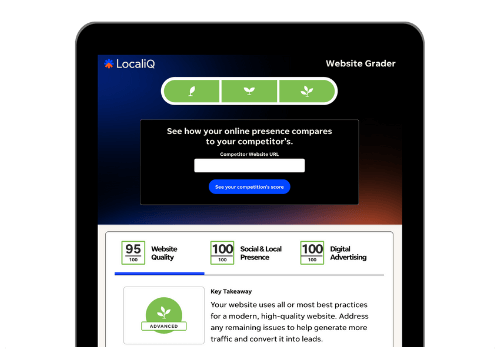If you’re reading this, you likely already have a business. But do you have a brand purpose?
Brand purpose isn’t simply what you do; it’s why you exist. You probably have a purpose even if you haven’t named and refined it.
Engaging in a little introspection can help you hone in on your unique brand purpose. Defining it is one way to stand out in a crowded marketplace and win customer loyalty.

Ready to learn more about brand purpose? We’re going to explore:
- What brand purpose is
- Why it’s important to define your brand purpose
- How to create your business’s brand purpose
- Brand purpose examples to inspire you
Let’s jump in!
What is a brand purpose?
Brand purpose is your brand’s reason for being. This statement shouldn’t be internally focused–it’s not about you making a fortune or amassing a business empire.
Brand purpose has a broader scope than just enriching your business, but it should still tie into your business model and what you do. It speaks to your place in the wider world. How do you make your community and your customers’ lives better through your work?
It’s also important to note that, while brands with a social impact mission have become something of a trend in recent years (with many companies pledging to give away glasses, socks, or a percentage of sales), your brand purpose does not need to be about charitable giving. In fact, corporate social responsibility is its own separate thing.

Warby Parker’s brand purpose is different than their pledge to give a pair of glasses for each purchase.
Let’s take a look at some examples of brand purpose statements so you can see what we’re talking about.
Impactful brand purpose examples
Brand purpose statements make the most sense when you know the business in question, so let’s look at some household name brands.
Nike
First up is Nike, which defines its brand purpose as “to move the world forward through the power of sport.”

As you can see, its purpose is not product-focused. It’s not something like “to sell lots of Air Jordans.” But it is tied in with sports and the items that Nike sells–namely sports apparel and shoes.
Instead, Nike’s brand purpose is about how the items it sells enable a loftier goal. Anyone who’s played sports knows that it instills many great qualities in athletes, like teamwork, resilience, grit, and confidence.
Nike aligns its products with these higher ideals by hinting at the fact that its products play a crucial role in enabling the personal growth we can experience from sports. You can’t develop these positive traits without cleats to wear on the soccer field or hoodies to keep you warm on winter runs.
By selling these types of products, Nike facilitates its customers’ ability to learn the crucial lessons sports can teach and grow into better people.
Slack
B2B communication service Slack’s brand purpose is “[to] make work life simpler, more pleasant and more productive.”

Again, the purpose isn’t about getting new organizations to pay for Slack or integrating more business tools into the Slack platform.
Instead, Slack’s purpose is customer-focused. The company is on a mission to make your work life better! It hopes to do that through its products, of course, but the stated mission is about you, not them.
Warby Parker
Let’s circle back to Warby Parker. We talked about their give-back mission, but what is their brand purpose? Warby Parker’s brand purpose is “to provide higher-quality, better-looking prescription eyewear at a fraction of the going price.”

Warby Parker’s brand purpose isn’t about selling the most glasses but about providing an affordable alternative to the traditional model of purchasing eyewear.
Why is brand purpose so important?
You may be thinking, That’s nice for those big brands, but does a business like mine really need a brand purpose?
The answer is a resounding yes! It all comes down to changes in consumer habits and expectations.
Folks today are more conscious about how and where they shop. They want to spend money with brands that align with their worldview and principles. Today 82% of consumers make purchase decisions based on a brand’s purpose and values.
This trend is especially pronounced among Gen Z and Millennial shoppers. As Baby Boomers retire, they’re giving up their title as the largest consumer group, and Millennials and Gen Zers are taking their place. Combined, Millennials and Gen Z make up 139.3 million people in the US; Baby Boomers’ tally is 70.68 million.

If you don’t have a bigger brand purpose for your business, you may be cutting yourself off from this massive segment of the consumer population. You can’t only have a purpose in your head; you need to define it (and share it!) so your customers know it.
How to create your brand purpose
As we said earlier, your brand already has a purpose–even if you haven’t defined it yet. Your task is to find that purpose and voice it.
So where should you begin your search? Your brand purpose lives at the intersection of what you do and what your customers need. And the best place to tap into what your brand does for your customers is to ask around.
1. Brainstorm with your team
Start by brainstorming with your team. Ask your team members:
- What positive feedback do you consistently hear from customers?
- How do customers say using our product or service has improved their life?
- What part of the customer interaction makes you feel most proud?
Remember, there are no bad ideas in brainstorming! Encourage your team to toss out all ideas they have.

Your team interacts with customers every day, so they likely hear a lot of the same feedback over and over. Sometimes, your brand purpose lies in those repeated comments.
Other times, the part of your job that brings you pride and joy can point you toward the deeper meaning of your work.
For example, if you’re a school administrator, perhaps you get the greatest satisfaction from seeing former students stop by to say hello and tell you how their lives are going.
If that’s the case, perhaps your school’s purpose is to create an educational foundation that serves students throughout their lives.
Related: Small Business Branding Basics + Ideas to Get Started
2. Ask your customers
Once you’ve thought things through amongst yourselves, think about gathering some feedback from your customers.
There are several ways to handle customer outreach:
- You can create a short survey to send to your repeat customers.
- You may consider having a one-to-one discussion with those customers that are your biggest supporters.
- Customer feedback left on Yelp, Facebook, or Google can be a wealth of unsolicited information from a wide cross-section of your customer base.
No matter how you choose to collect customer feedback, the critical piece of information you’re looking for is your differentiator. There’s likely a reason your best customers buy from you and not your competitors. It’s okay to ask them what that reason is!

Sometimes, your customers see something unique in your business that you don’t see in yourself. An outside perspective can be valuable in identifying the pain point you address and refining your brand purpose.
3. Start to craft your brand purpose
Once you’ve gotten input from your team and valued customers, it’s time to put pen to paper.
This step of articulating your brand purpose is crucial, as it will be a foundational part of your marketing for years to come. It’s okay–encouraged, even–to spend time developing this statement and closely considering each word you choose.

There are a few qualities that strong brand purposes all share:
- It resonates with you, your team, and your customers.
- It can grow with your business, even if your products or services shift over time.
- It ties your daily work in with your broader goals.
- It’s aspirational and energizing. It’s what your business does on its best day and what you strive to do every day.
- It’s short and sweet. It isn’t a manifesto; it’s an overarching principle.
- It is honest and achievable. The only thing worse than having no brand purpose is having a phony one. Consumers can smell fake virtue a mile away.
4. Try a brand purpose on for size
Deciding on your brand purpose is sort of like settling on your business name–there’s no need to rush it. As you begin to draft your statement, there will likely be a few ideas that stand out to you. It’s okay to try a few on for size.
If you want to test out a few options, do it internally. Don’t send out a big press release trumpeting your brand purpose only to have it change a few weeks later. You are encouraged to run your ideas by folks on your team to see what fits best.
You may even consider writing the contenders on a whiteboard in your office so you can live with them in your space for a little while. Over time, one will begin to show itself as the right fit. In the end, it’s best to listen to your gut. You’ll know when you’ve found the right brand purpose.
5. Share your brand purpose with the world
Once you’ve identified the correct brand purpose, now you can issue that press release or post that social post and share it with the world!
Your brand purpose is your guiding principle, so don’t hesitate to put it out there in your marketing materials. Include it on your website, create signs for your retail location, print it on your receipts, and add it to your email signature. Sharing it inspires consumers to do business with you. When they see you have a bigger goal in mind, they want to support that.

Another benefit to sharing your brand purpose is that it helps keep you focused on fulfilling it. When you see your purpose everywhere throughout the day, it’s a reminder of what should be driving your business decisions and actions.
Craft a meaningful brand purpose
Your brand purpose plays a crucial role both inside your business and in the wider world. Identifying your brand purpose can provide your team with an anchor for their daily actions and decisions. Asking, “Does this align with our brand purpose?” is a great check-in employees can do as they move through their work.
It also helps your customers understand how you hope to improve their lives and leave the world a little better than you found it. Defining your brand purpose takes a little bit of time and effort, but it pays dividends as your company grows and serves new customers and your community.






